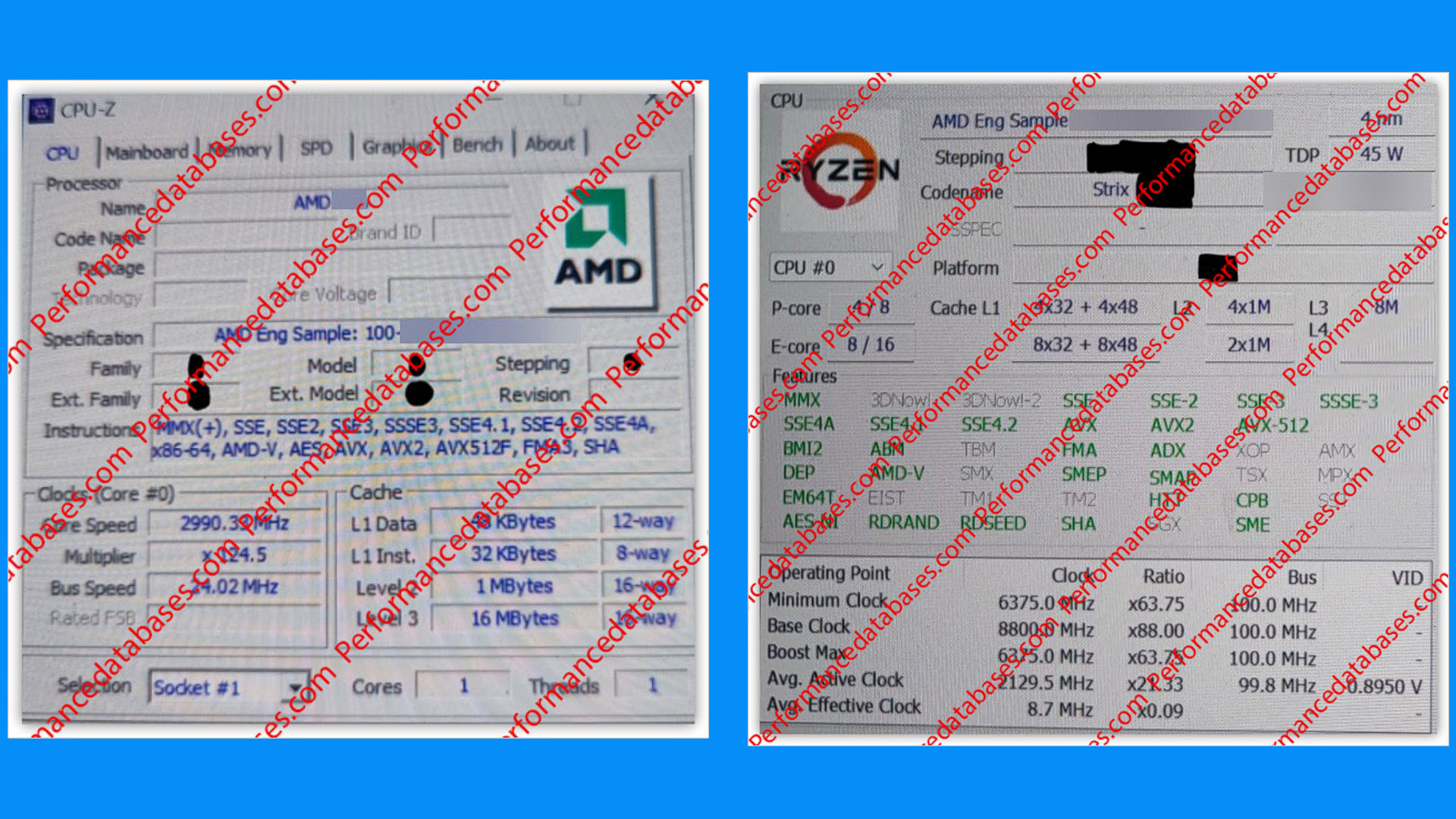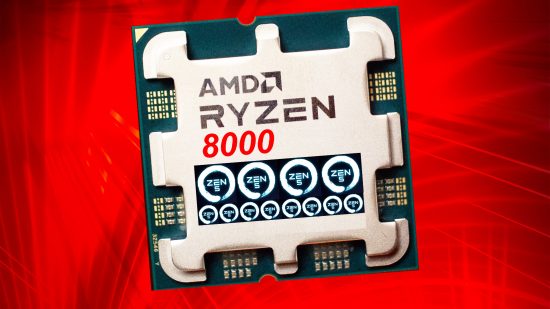AMD is seemingly planning to beat Intel at its own game next year in the upcoming battle between Zen 5 and Arrow Lake. An AMD Zen 5 CPU appears to have been shown in action in a pair of leaked screenshots, which report separate P-cores and E-cores, just like Intel Raptor Lake CPUs. We’re still a long way from the launch of AMD Zen 5 CPUs, which aren’t expected to arrive until 2024, but if these screenshots are genuine they mark a very different strategy for AMD.
The two screenshots purportedly show an AMD engineering sample CPU in CPU-Z and HWiNFO. Neither of these pieces of software appears to be able to fully detect the CPU’s details (there’s a hilarious boost clock of 8.8GHz listed), but they do give us some clues about what to expect.
The HWiNFO screenshot is the most revealing. Although several sections of it are censored, the shot shows an AMD hybrid CPU built using a 4nm manufacturing process and a 45W TDP. More interestingly, though, it has four P-cores (performance) and eight E-cores (efficiency), rather than the single block of 12 identical cores found in CPUs such as the current Ryzen 9 7900X.
Not only that, but it looks as though the E-cores also support AMD’s equivalent of Intel’s Hyper-Threading tech, SMT, doubling the number of threads they can handle. The eight E-cores are shown as having 16 threads, which could give AMD a substantial multi-threading advantage over Intel, which currently doesn’t enable Hyper-Threading on its CPU’s E-cores.

The screenshots, which come courtesy of Performancedatabases.com follow a rumor from tech leaker Golden Pig Upgrade Pack a few days ago, which also detailed a hybrid Big.Little chip design from AMD. This leak suggested a forthcoming CPU with four ‘Z5C’ cores and eight ‘Z5D’ cores. Twitter user @9550pro has claimed that this is short for Zen 5 Classic and Zen 5 Dense.
However, AMD has recently started using Zen 4c cores in its Bergamo EPYC chips, which are compact and have lower clock frequencies, as well as less cache, than standard AMD Zen 4 cores. AMD has already announced that a compact Zen 5c core is similarly in the works, and it may be that future CPUs will use a mix of Zen 5 and Zen5c cores.
The codename of the CPU is ‘Strix’, suggesting this is a mobile Strix Point CPU, rather than one of the forthcoming Granite Ridge desktop CPUs. This explains the low TDP and small number of P-cores.
If these screenshots are genuine, and AMD is indeed experimenting with a hybrid Big.Little approach to cores, then it marks a big turnaround for the company. Previous Zen 5 rumors have pointed to Zen 5 CPUs having the same number of cores as the Zen 4 lineup, but this could all change if AMD can combine smaller and larger cores in its designs.
While the Zen 5 launch is a fair way off at the moment, there are still plenty of good CPUs available right now, which you can find in our guide to the best gaming CPU. One of our favorite chips from AMD’s current Zen 4 lineup, is the Ryzen 7 7800X3D, which has loads of cache to boost gaming performance.
AMD Zen 5 CPUs are expected to launch in 2024, when they will be up against Intel 14th gen Raptor Lake Refresh chips, and later Intel Arrow Lake processors, with the latter expected to be significantly quicker than Intel’s current 13th-gen CPUs, such as the Core i7-13700K. One feather in AMD’s cap here is that Zen 5 CPUs will use the same Socket AM5 socket as Zen 4 CPUs, making for a cheap upgrade path if you already own one of the latter.
Is the prospect of AMD embracing a hybrid core design appealing to you? Let us know your thoughts on the Custom PC Facebook page, via Twitter, or join our Custom PC and Gaming Setup Facebook group and tap into the knowledge of our 400,000+ members.
